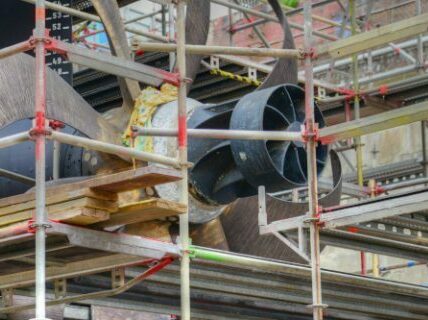Case File
German Submarine Sales to Portugal

Contents
Introduction
Introduction
contentsSubmarine sales seem to be particularly prone to bribery. They are complex, once-in-a-generation (for most countries) purchases. Prices are difficult to compare in a meaningful way. Further, submarines offer most countries little practical military use in the 21st century security context. A stealthy, underwater vehicle, they also seem to be a powerful vessel for concealing corrupt payments. Very often, the bribes, like the submarines, can be hard to detect and pin down. Portugal’s 2004 acquisition of two German submarines is such a case, where the payment of bribes has been established in a German court, but no-one in Portugal or elsewhere seems to be guilty of receiving them. The Portuguese investigation was closed in 2014, with no convictions.
Case Details
Case details
contentsActors
Actors
contentsPaulo Portas – Portuguese Defence Minister in 2004; signed submarine deal.
Hans-Dieter Mühlenbeck – ex-Ferrostaal manager; pleaded guilty to bribing Greek and Portuguese officials in German court in 2011.
Johann-Friedrich Haun – ex-Ferrostaal manager; pleaded guilty to bribing Greek and Portuguese officials in German court in 2011.
Jurgen Adolff – former Portuguese honorary Consul in Germany; accused of receiving EUR 1.6 million bribe in relation to submarine deal. Acquitted.
ESCOM – UK consultancy firm; received EUR 30 million payment for brokering deal.
Allegations
Summary of Corruption Allegations
contentsA British company, ESCOM, was hired by the Portuguese Ministry of Defense to act as brokers for financing the deal, and for managing the offsets programme. ESCOM was paid EUR 30 million, from which it is alleged that bribes were paid to Portuguese decision-makers. Among the suspected bribe payments were over EUR 1 million paid in cash into the accounts of the Portuguese Christian Democrat Party of Defence Minister Paulo Portas, EUR 1.6 million allegedly paid to a Portuguese Honorary Consul in Berlin, Jürgen Adolff, and EUR 1 million paid to a Portuguese Rear Admiral. None of this was ever proved, however.
Suspicions also centered around the offsets contract, which was only 25% fulfilled by 2010, although it was supposed to be complete by 2012. Fraud relating to the offsets contracts were suspected of costing the Portuguese taxpayer up to EUR 34 million. Offsets are considered a major corruption risk in arms deals, as the details of such deals are generally completely opaque. This makes it relatively easy for arrangements to be made to steer offset investments and counter-trade purchases to favoured companies in the recipient state, for example companies owned by individuals connected to key decision-makers.
Timeline
Timeline
contents- Portugal decided to buy three new submarines.
- Portugal issued a tender.
- The German Submarine Consortium, of Howaldtswerke Deutsche Werft (HDW), Thyssen Nordseewerke and MAN Ferrostaal was selected over a rival French bidder, and the number of submarines purchased was reduced to two.
- SepContract entered into effect; the final price was EUR 833 million.
Outcomes
Investigation Outcomes
contents- Portuguese prosecutors began investigations. Judicially authorized wiretaps suggested that the Christian Democrat Party had received kickbacks relating to the deal in 2004, paid by the broker company ESCOM. The investigations related both to the deal itself and to the offset contracts, alleged to have involved corrupt dealing.
- The Portuguese investigation was hampered by a lack of resources and the replacement of the prosecutorial team, the disappearance from the Portuguese Ministry of Defense of key documents relating to the contract, and a lack of cooperation from the German authorities in sharing evidence. Since the Ferrostaal executives had pleaded guilty, the evidence against them was not presented in court.
- DecAfter investigations were carried out in Germany as part of broader investigations into corruption by Ferrostaal (which separated from MAN in 2012). Two former Ferrostaal executives, Hans-Dieter Mühlenbeck and Johann-Friedrich Haun, pleaded guilty to bribing Greek and Portuguese officials with EUR 62 million (with EUR 1.6 million going to Portugal), in relation to the sale of submarines to the two countries. Ferrostaal agreed with German prosecutors to pay a fine of EUR 140 million.
- Ten individuals, including three Germans (of whom two were MAN-Ferrostaal executives) and seven Portuguese, were charged with falsifying invoices in relation to the offsets programme, but were acquitted in a Portuguese court.
- DecThe Portuguese investigation was closed due both to difficulty in obtaining evidence and the expiration of the statute of limitations for any corruption-related crimes that might have been committed.
- After a conviction in 2014, Dr. Jürgen Adolff, a Portuguese honorary consul was acquitted on appeal after being investigated for allegedly receiving EUR 1.6 million in bribes to influence the Portuguese government in favor of the German submarine consortium. In documents seized from Dr. Adolff’s office, he describes how he arranged meetings between consortium executives and the Portuguese Prime Minister, Jose Manuel Barroso, among others.
References
References
contentsWorld Peace Foundation - Compendium of Arms Trade Corruption, https://sites.tufts.edu/corruptarmsdeals/german-submarine-sales-to-portugal/
“Ferrostaal,” TRACE Compendium, https://www.traceinternational.org/TraceCompendium/Detail/79?class=casename_searchresult&type=1.
Ana Gomes, “Complaint to the EC Commission regarding infringement of the community laws,” Feb. 3, 2012, http://www.anagomes.eu/PublicDocs/66e9cd99-93f0-481a-8306-1e78d84cb8dc.pdf.
Luis de Sousa, “Dealing in the dark: Portugal’s sad defence contracts,” Transparency International blog, Sep. 3, 2012, http://blog.transparency.org/2012/09/03/dealing-in-the-dark-portugals-sad-case-study-on-defence-procurement/.
“Justiça portuguesa arquiva caso dos submarinos,” Esquerda (online), Dec. 18, 2014, http://www.esquerda.net/artigo/justica-portuguesa-arquiva-caso-dos-submarinos/35181.